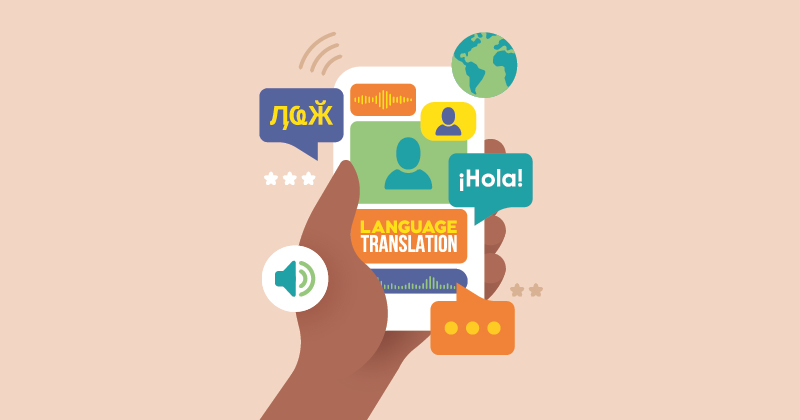I’ve been teaching EFL (English as a Foreign Language) and then ESOL (English for Speakers of Other Languages) for about 20 years. I am Polish and English is my second language, learned as a teenager, and I used to think that this gave me a natural empathy with my learners. But at the start of this year I signed up for a Spanish course, partly to put myself back in their shoes. The experience has been eye-opening.
As a complete beginner, I felt overwhelmed after the very first class. Nothing was familiar. The teacher introduced expressions I couldn’t connect to anything I already knew.
The effort it took just to be able to say ¿Cómo te llamas? the following week truly astonished me. I couldn’t remember new words, and I was grateful that I could at least read Spanish letters, as they resemble the sounds in my native language. My English-speaking classmates had no such advantage.
I thought I already understood the barriers my ESOL learners at WM College face, but I had underestimated them. I also discovered how much small moments matter. When I finally remembered how to introduce myself without hesitation, I felt a tiny spark of pride. I couldn’t understand what the teacher was asking mein front of my classmates and felt self-conscious – key reminders of the emotional rollercoaster many ESOL learners face daily.
The contrast between my situation and my students’ is also striking. I chose to learn Spanish as a hobby. My learners need English to navigate daily life in the UK – booking medical appointments, filling in forms, or even asking for the right bus. I come with study skills, grammar knowledge, and experience of learning other languages. Yet the classes still felt challenging. Many of my learners had only basic education, or none at all. For them, the challenge is even greater.
As a learner, I noticed I thought more slowly, needing time both to gather my thoughts and to express them. I felt helpless and frustrated when I lacked words or grammar. Tasks that seemed simple from the teacher’s perspective could feel overwhelming on the other side of the smartboard. I also observed how different teaching methods – visual aids, repetition, and peer interaction – helped me, and I realised how crucial these are for all learners, particularly in ESOL classrooms.
Experiencing another person’s teaching has revealed my own shortcomings and helped me to improve. I now spend more time revising in class, and I’m more forgiving when learners say they didn’t study at home – I have to juggle it too.
I’m more generous with timing and remind both myself and my students that learning takes time and patience. I’ve always understood the importance of paired speaking exercises or using visual prompts in my teaching but experiencing them as a learner has made me place even greater emphasis on these techniques with my learners.
This experience has also made me reflect on the wider ESOL sector.
FE colleges operate under tight budgets, yet investing in teacher wellbeing and development – even just through free courses – should not be seen as a financial burden, but as a worthwhile investment in better teaching, more engaged learners, and stronger institutions.
ESOL provision faces mounting pressures amid funding cuts and growing demand. Positive sector-wide change cannot happen at the expense of teacher development. Supporting teachers to step back into the classroom, even briefly, is one practical way to achieve this.
Learning Spanish has been enjoyable, but more importantly, it has made me a more empathetic teacher at WM College. Adult colleges such as ours provide ongoing professional development, but I believe every teacher, whatever their subject, should occasionally become a learner again. provide ongoing professional development, but I believe every teacher, whatever their subject, should occasionally become a learner again.
Stepping back into the classroom reminds us just how hard it really is, and how essential patience, resilience, and small victories are for every learner. Becoming a learner again doesn’t just benefit the teacher – it strengthens the classroom community, encourages resilience, and reminds us that learning is a lifelong journey. It’s a perspective every teacher could benefit from, and one that ultimately helps learners thrive.
¡Buena suerte!











Your thoughts